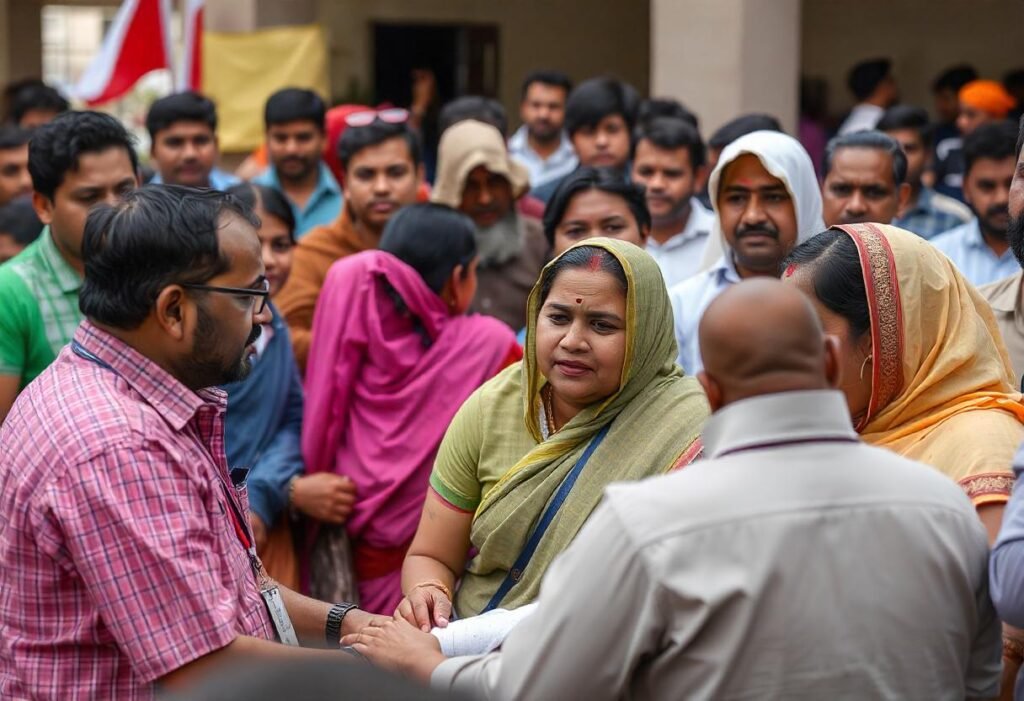For any development project to succeed, it is important to engage communities. If projects are actively participated in by local populations, they tend to respond better to actual needs, attract community support and lead to a sustainable impact. This article highlights the importance of involving communities in development and suggests practical means through which this could be done as well as the company Integral World’s experience in creating value through engaging with the society.
Significance of Community Engagement
Community engagement is not just another hot topic; it is very vital for successful development interventions. They bring their unique insights and participate in decision making when engaged that eventually makes them own up projects leading to more responsive outcomes. The reasons why community involvement should be enhanced include;
1. Relevance and Effectiveness: Development projects are made based on tangible needs and priorities of individuals meant to benefit from them by engaging communities
2. Ownership and Sustainability: In this case, if communities are part of planning or implementation processes, they will feel some sense of ownership.
3. Enhanced Trust and Collaboration: When we engage with communities, trust grows between us and them as they realize that we also sweat like they do. It helps us overcome obstacles towards achieving project goals.
Effective Approaches for Engaging the Community

Creating efficient tools for engagement requires a well-thought-out approach toward attaining your set objectivities. Here are some strategies you can use:
Complete Needs Assessments
Conducting extensive need assessment is the underlying basis upon which successful community engagement methods are built. It involves collecting data about what is required by specific groups within the societal setting such as preferences or challenges faced. Key approaches include:
•Surveys/Questionnaires-Quantitative data collection on community needs by employing questionnaires. Therefore, focus Groups- an alternative way can be arranging several focus group discussions with different segments of society.
•Community Mapping-this strategy results into creation of visual charts indicating community’s assets, problems and other significant characteristics.
Inclusive Engagement Strategies
Below are some tips to ensure that engagement efforts are all-inclusive and representative:
- Diverse Participation–Involve a wide range of people such as different age groups or social classes in the society. This way, diverse opinions will be taken into account.
- Cultural Sensitivity: Respect and understand cultural differences when designing and implementing engagement activities. Tailor your approach to align with local customs and traditions.
- Accessible Communication–For instance, hold meetings at the community level among other ways of communication.
Interactive Tools & Kits Development
Interactive tools and kits facilitate active participation and engagement. Examples of such tools can be;
- Community Engagement Kits—These packages could include questionnaires, discussion guides, feedback forms, etc., to capture meaningful input from community members. They should also be user-friendly.
- Workshops/Training Modules- This is about arranging workshops or training sessions to educate members about the project itself they may have their say on it during these occasions which will comprise open discussions between participants.
- Digital Platforms: Use digital platforms, such as online surveys, forums, and social media to engage with savvy-tech community members. In addition, these platforms will provide real-time feedback and discussions.
Building Local Partnerships
Local organizations and leaders can be partners that enhance community involvement. The following should be considered:
Working with Local NGOs: Partnering with local non-governmental organizations (NGOs) that have established relationships and credibility within the community.
Engaging Community Leaders: Engage the project’s leaders in the community where they live. They are always available for consultation by other members of the public who need their services or assistance.
Leveraging Local Expertise: Benefits from working with professionals and volunteers who hail from that particular locality. This provides a lens through which we can view engagement strategies that are likely to work effectively.
Real-World Examples of Successful Community Engagement
Example 1: Water and Sanitation Project in Kenya
In Kenya, a non-profit organization focused on improving water and sanitation facilities implemented a successful community engagement strategy. This group conducted surveys and organized focus groups to identify specific challenges affecting people in the area. Thereafter, educational materials were put together comprising of engagement kits and feedback forms. Community workshops provided an opportunity for dialogue while local leaders offered much needed support towards achieving sustainable water supply and sanitary facilities.
Example 2: Education Initiative in India
The goal of an education-focused NGO operating in rural India was to improve learning outcomes for children attending schools in remote areas. Teachers’ workshops were held in order to establish what could be done differently at school level while parents’ meetings aimed at sensitizing them on how they could contribute positively towards their children’s academic development. The project developed interactive kits containing aides for instruction as well as resource materials for use by the local schools during classes at different levels including pre-primary up to standard eight.
Continuous dialogue sessions between project participants and community members enabled the specific tailoring of programs to address community needs (George & Mbiti 2010). Student performance improved as a result and communities became more involved in education.
Expert Insights and Quotes
Dr. Maria Lopez, Community Development Expert: “Effective community engagement is crucial for the success of development projects. By involving local populations in every stage of the project, organizations can ensure that their interventions are relevant, sustainable, and impactful.”
John Anderson, Non-Profit Consultant: “Engaging communities is not just about collecting input; it’s about building relationships and fostering trust. Successful projects are those that genuinely listen to and act on the needs and preferences of the people they serve.”
Conclusion
Team-building is key to sustainable development. Learn emerging trends and expert advice from Integral World to stay ahead and achieve goals.
Creating effective tools and kits for encouraging community participation in development initiatives. By undertaking comprehensive needs assessment surveys, creating all-inclusive engagement strategies as well as utilizing interactive methods of communication among other things; organizations increase chances of attaining sustainable results faster.
Integral World provides solutions that help organizations create efficient plans for effective interaction with others to achieve mutual goals. To learn how Integral World can help your organization develop effective engagement tools contact us today. Let us enable you integrate with various societies thus realizing your developmental objectives.


1 Comment
Tech Learner I really like reading through a post that can make men and women think. Also, thank you for allowing me to comment!
Comments are closed for this article!